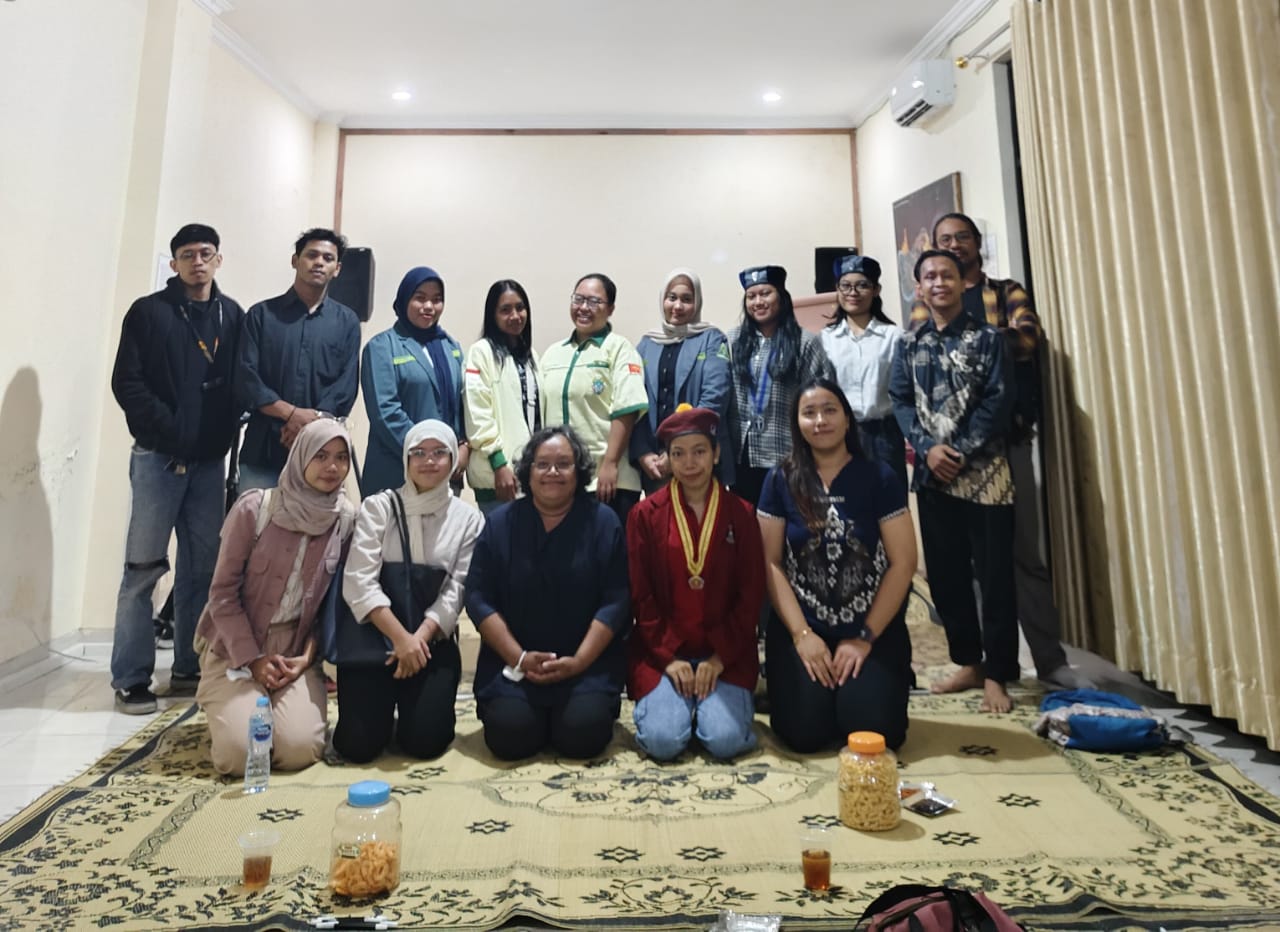Sixteen young people from community youth organisations watch “Kartini” film produced by Hanung Bramantyo in 2017. These organisations consist of Indonesian Christian Student Movement (Gerakan Mahasiswa Kristen Indonesia or GMKI), Catholic Youth (Pemuda Katolik), Girl Up UNS, Permahi, IPPNU, Gusdurian, PUKAPS, KNPI. The event takes place at Anawim Room Yayasan YAPHI, Wednesday (30/4). Renny Talitha dari Yayasan YAPHI is the facilitator for the discussion.
In the discussion, Jasmine from Girl Up says that Kartini was revolting against feudalism. This revolt showed that Kartini tended to be on the left, yet the New Order portrayed her as a “mother,” despite the fact that Kartini wanted a change.
Fatahillah from KNPI says that in the film, “Kartini” is not just a female figure fighting for education, but the fight also involved father, brother, husband, and religious leader (Kyai Soleh Darat). “In today’s context, Kartini may be celebrated as the domestication of women,” he says.
Nola from PMKRI focuses on the action(s) of Karyini’s brother - Kartono - that opened the key (re. opportunity) that showed he was a relentless fighter. “I realise whether it was possible for a girl to go to school from the beginning (learning to recognize letters) to the end (ability to read). Then I realise that Kartini’s presence changed Indonesian women and men simultaneously. This was despite the fact that she did not go to higher education,”says Nola.
Expectations
Anastasia from GMKI says that women are able and can get equal education as men. And women should be thankful that they know there is equality. Both men and women know what equality means. Women have the right to learn and there is no need for comparison.
Ahmad Makruf from Permahi suggests that it is now clear what women’s rigts and views are , yet women still need to deal with tradition or habits – re. arranged marriage or traditional perception of “rules/regulation associated with a person’s birthday”. “We watch that the film solves problems without creating problems. This remains key principle in Java, which the rules/regulations about birthday try to avoid. Development for the poor should continue in Indonesia without disrespecting or dishonouring parents. This is what I see from a cultural perspective.”
Siti Mutmainah from PUKAPS hopes that in the future women should support each other. I can see that there was no such thing in the film. I hope that men respect and support women. “We still find men who do not think of women highly (as equal).”
Ida from IPPNU opines that Kartini used her privilege well and brought changes for the better. She hopes that there will not be more hindrances although at the moment people are wondering) “why should girls go to higher education." The fact is, there remains stigma in the community. In other words, there is gender equality but in community, the belief remains strong that men should be the leaders.
Renny responds by saying that the Patriarchy social construction remains strong. And it is still difficult to change the culture. So we must start from ourselves. Hopefully, this will lead to a change in culture.
Laurensia from Pemuda Katolik hopes that in the future, after watching this “Kartini” film women would become more resilient in their fight for their ideals/aspiration. “Now there is still stigma that men should be the leaders,” she says.
Sura Aji from Gusdurian closes the discussion session by drawing attention to the wife of the Administrator in Jepara which showed an example of a class struggle. “There were many events, the same – women – but challenges the struggle. It was because of feudalism that there was a fight for rights. So the expectation was as losers, we had to unite,” says Sura. (ast)
Renny : Kartini’s fight is not yet over. We must fight together.
Would you be happy to have another discussion? Can I ask...
Please write... the theme about learning...watching the film is the medium.
Interested in discussion with games or watching a film.
An interesting theme, right? How long are we going to continue the meeting?












